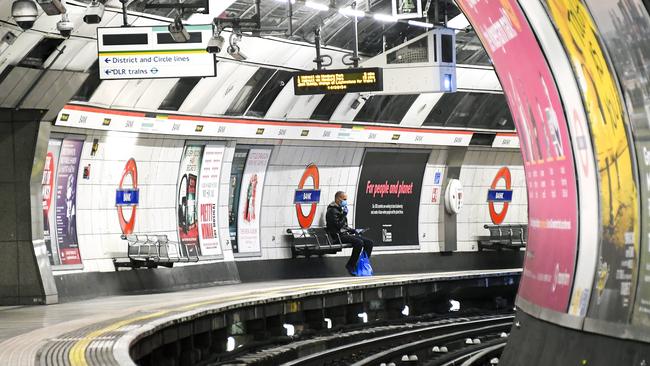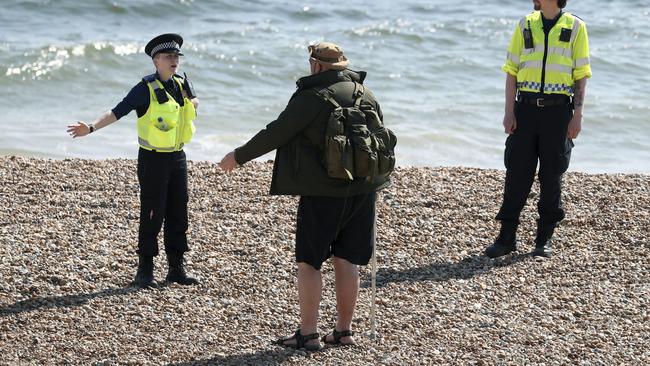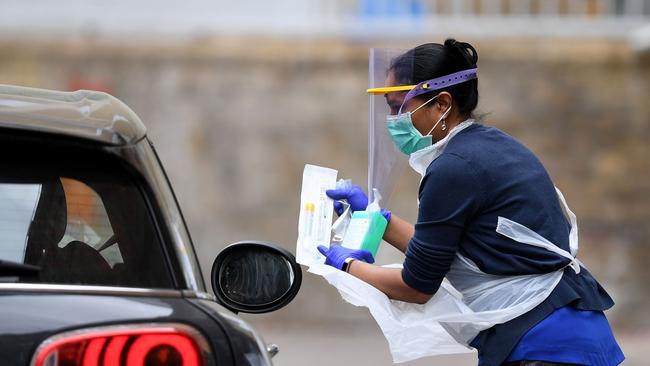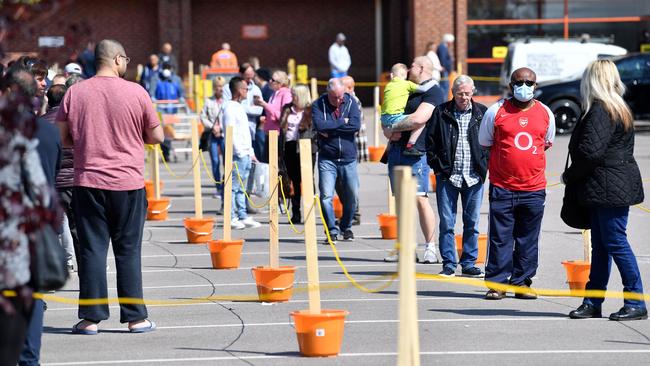Coronavirus tracking app reveals COVID-19 may have been in UK weeks earlier than first thought
As deaths in the UK hit 20,000, a tracking app has revealed the virus was running rampant there much earlier than thought.

The coronavirus was spreading in the UK weeks before the first case was detected, according to a leading epidemiologist.
Professor Tim Spector has collated reports of people falling ill with “classic symptoms” of the disease from the start of January.
It suggests the disease was well established before two people from China became the UK’s first confirmed cases on January 31.
Spector, professor of genetic epidemiology at King’s College London, gathered the reports through the 2.6m people signed up to his team’s Covid Symptom Tracker app, where they report their past and present health status.
So many of those using the app have reported having symptoms in January, Spector said, that it is highly likely the disease was circulating soon after new year. Some have even reported symptoms in late December. “What’s impressive is the sheer volume of the reports,” he said. “We’re getting hundreds of the people using our app telling us that they developed something soon after the new year.”
Spector and his team have found that COVID-19 victims can suffer any or all of 12 key symptoms, with the commonest including a fever, persistent cough, loss of taste or smell and mental confusion.

Each of the symptoms can occur in other diseases too, but a combination, or their occurrence in people who have been close to victims, strongly suggests COVID-19. “The reports I am getting are from people who were ill from early January onwards and strongly suggest they had COVID-19 but were not recognised as such,” Spector said.
He cautions that retrospective and subjective reports of symptoms of illness are hard to substantiate, but the sheer volume is powerful evidence – and could be confirmed by antibody tests when they become available.
The app, developed by Zoe Global, a London biotech firm, includes questions about previous exposure to COVID-19, including any symptoms experienced and their dates.
Spector’s team, which is backed by the Royal College of Physicians, Royal College of Surgeons and other medical bodies, uses the data to estimate the size and geographical spread of the epidemic. It suggests that 376,000 people around Britain have COVID-19 symptoms this weekend, with hot spots around Walsall, Lichfield and Nuneaton in the Midlands, Boston in Lincolnshire, Blaenau Gwent in south Wales, Pendle in Lancashire and Inverclyde in Scotland. The app reports also have some good news, suggesting that the number of symptomatic cases peaked at 2.1 million on April 1 and has declined steadily since then.
Spector and his team are publishing a paper in Nature Medicine this week suggesting that a wider range of symptoms should be included in diagnosing COVID-19. At the moment the government-recommended key diagnostic signs are fever and a persistent cough. This means people with any of the other symptoms who call 111 may not be recommended to self-isolate and so will spread the disease.

“The number of real cases clearly vastly exceeds those recorded by the government, because testing has been reserved for those sick enough to be in hospital,” Spector said. “In most cases people recover at home and so are never tested.”
The UK’s earliest cases could include people such as Daren Bland, 50, who was skiing at Ischgl, Austria, from January 15 to 19. On his return he became ill and passed the infection to his wife and children in Maresfield, East Sussex. Bland’s illness fitted the COVID-19 profile of symptoms but was never confirmed by tests.
Ischgl has since become infamous as the location of one of Europe’s biggest clusters of COVID-19, with 600 Austrians infected and 1,200 visitors from other countries including Germany, Norway, Iceland and the UK thought to have taken the virus home.
Such European travellers are in addition to the tens of thousands of people who flew to the UK from China in January. There were about 17 direct flights from Wuhan alone between new year and January 24.

Scientists in other countries have also seen evidence that COVID-19 was circulating for weeks before it was first detected.
In late March a study in Lombardy in northern Italy found that the virus might have been circulating in the region for more than a month before it was detected in the town of Codogno on February 21.
In America the first officially reported death occurred in Washington state on February 29.
Last week, however, three people who died in Santa Clara County, California, between February 6 and March 6 were confirmed as COVID-19 deaths after post-mortem examinations. Since the time taken from infection to death is usually 2-4 weeks, this suggests the virus was also spreading in the US in mid-January.



To join the conversation, please log in. Don't have an account? Register
Join the conversation, you are commenting as Logout